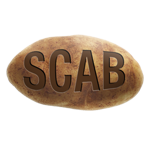
Recipes for Success, Speed and Survival
It’s half term – and I have COVID. So rather than enjoy a relaxed week full of mind-nourishing activities and a break from work, I’ve been indoors; watching things, cooking and well… working.
Rather than scan broad bountiful horizons for this reflection, then, I’ve taken in my more immediate surroundings to try and see what (if anything) I’ve learned from my week indoors. Or – more accurately, perhaps – what random household activities can I shoehorn into a piece of reflective writing about learning to advertise.
Last Thursday, at the SCA, me and my creative-partner-for-the-week played a game of ‘try to guess things about each other based off appearance’.
While I was a bit shit at it, they were pretty good. (Although like a stadium mystic guessing that the woman in seat 37G does ‘have someone close to her who is no longer in her life’ – and ‘that that person is… wait… I’m picking up something… a older relative!?’ –, I do wonder whether the things they were saying were the perfect combination of specific-sounding and generally-likely… But, still, they were mostly bang on).
Things said partner guessed about me:
Good at assembling IKEA furniture – fuck yep.
Likes to go on hikes – enough that it counts.
And…
… A good cook. (So basically, I come across like someone’s dad). Yes. Well, I think so anyway.
This course, and it’s wonderfully busy schedule (and that I don’t have an oven at the moment), has meant I’ve had to streamline my cooking a bit. Gone are the days of slow-cooked chowders and curries that take weeks. The priorities have become speed, healthiness and slightly above-acceptable taste. Everything has to be made in pans, and nothing can take hours. The aim is to strip things back to the core ingredients and refine the skills and processes needed to make something taste good.
You might even says it’s a bit like learning to be creative… And with that delicate segue, here are 3 lessons I’ve learned from efficient cooking that can be transferred seamlessly to my time at the SCA:
1. Learn the rules so you can break them
The more you know about how a dish is made, the different ways different people make it, and the different ingredients they use, the more you get a sense of what’s essential and what are creative embellishments or twists. In creative work too, knowing what’s out there is key. This week, in working on a brief for Power the Fight (a charity that tackles violence affecting young people), I promised myself I wouldn’t write something laden with the conventions of the other charity films in the same category. But – like a man on an e-scooter covered in jelly – these conventions were hard to get away from. Why?
2. Seek out good ingredients
In noodle soup, without the right ingredients, it can often feel like you’re ramen around in circles.
In making the dish, and especially when you don’t use meat stock – as is usually the way – strange-sounding ingredients (things like dried fermented skipjack tuna) are key. They can take a bit of research to find, but once you have them, the end result will be so much better.
In advertising too, where you consume your daily current affairs, weird facts and memes, is crucial. Marc mentioned reading The Conversation; I find Reddit threads an oddly good source of inspo. In creativity, you don’t have ideas, you find them – to quote Dave Trott. Like a race of simple tubular beings, re-processing the world as best we can, our ideas are simply the product of what we put into our heads: the better that goes in, the better that comes out.
3. Push it
Once you’ve made something good, the temptation to sit back is immense. The food tastes good and I’m happy. What more could I hope to achieve?
Now I’m can be bit a sucker for this way of thinking in the kitchen. Food-making is often just a means to an end, and, since I enjoy it, it’s something I find a totally pleasant to do for an hour or so in the evening.
But that was before the SCA. In between being tired and trying to fit things in after school, quick meals are the only way to go. Pushing my ramen recipe to be quicker, and without compromising taste – all because I want more sofa-time in the evenings –, has halved the time and cut the ingredients by about a third and it still tastes darned good. Necessity is the mother of invention (or, at least it is in this case).
Creative work is like going up a hill. At various points there are plateaus, and it gets steeper after each one. Only 10% of people push past the first one, only 1% of people push past the second, and only 0.1% push past the third. The higher you go, the rarer the company you’re in, and the higher your chances of finding some original shit up there are. Keep going, keep pushing the work, don’t let hills get the best of you, and it will all only get better from here.










